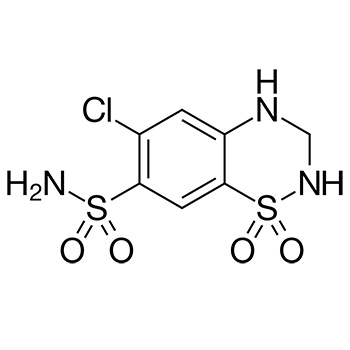Keywords
Hydrochlorothiazide, pulmonary edema, inflammatory systemic syndrome, hypersensitivity reaction
Abstract
Background: Hydrochlorothiazide (HCTZ) is one of the most popular drugs for the treatment of hypertension and heart failure. Most of its side effects are harmless and predictable, but some studies report a few life-threatening reactions to this drug, one of the most dangerous being acute pulmonary oedema.
Case Report: A 73-year-old woman was admitted to the Emergency Department with acute respiratory failure due to pulmonary oedema. Her past medical history included long-lasting hypertension with permanent atrial fibrillation and mitral stenosis. Her blood pressure control had been suboptimal, so her cardiologist had changed amlodipine to combination therapy with ramipril and HCTZ. However, 20 min after taking the new drug, the patient experienced fever, vomiting and diarrhoea immediately followed by acute onset of dyspnoea.
Conclusion: Since HCTZ is one of the most popular drugs for hypertension treatment and millions of patients take it every day, it is important to keep in mind both the common adverse reactions as well as the dangerous, although rare, ones.
References











